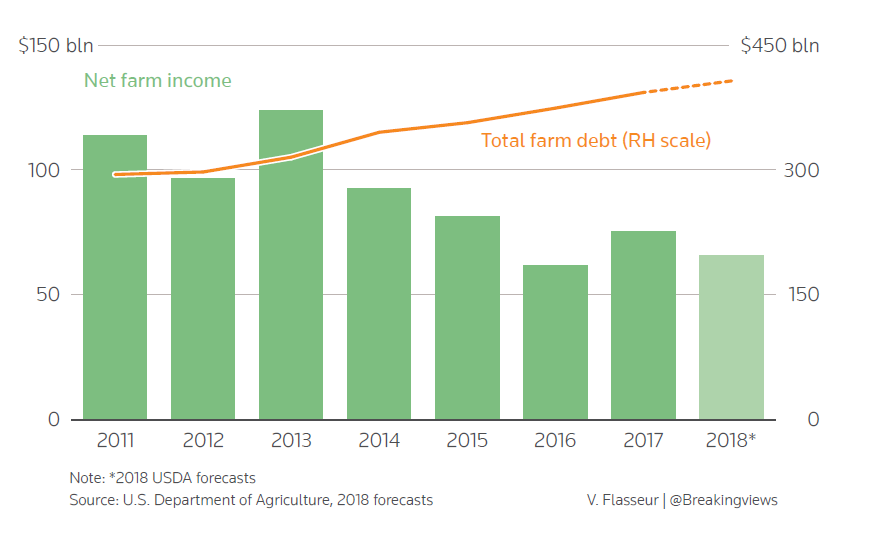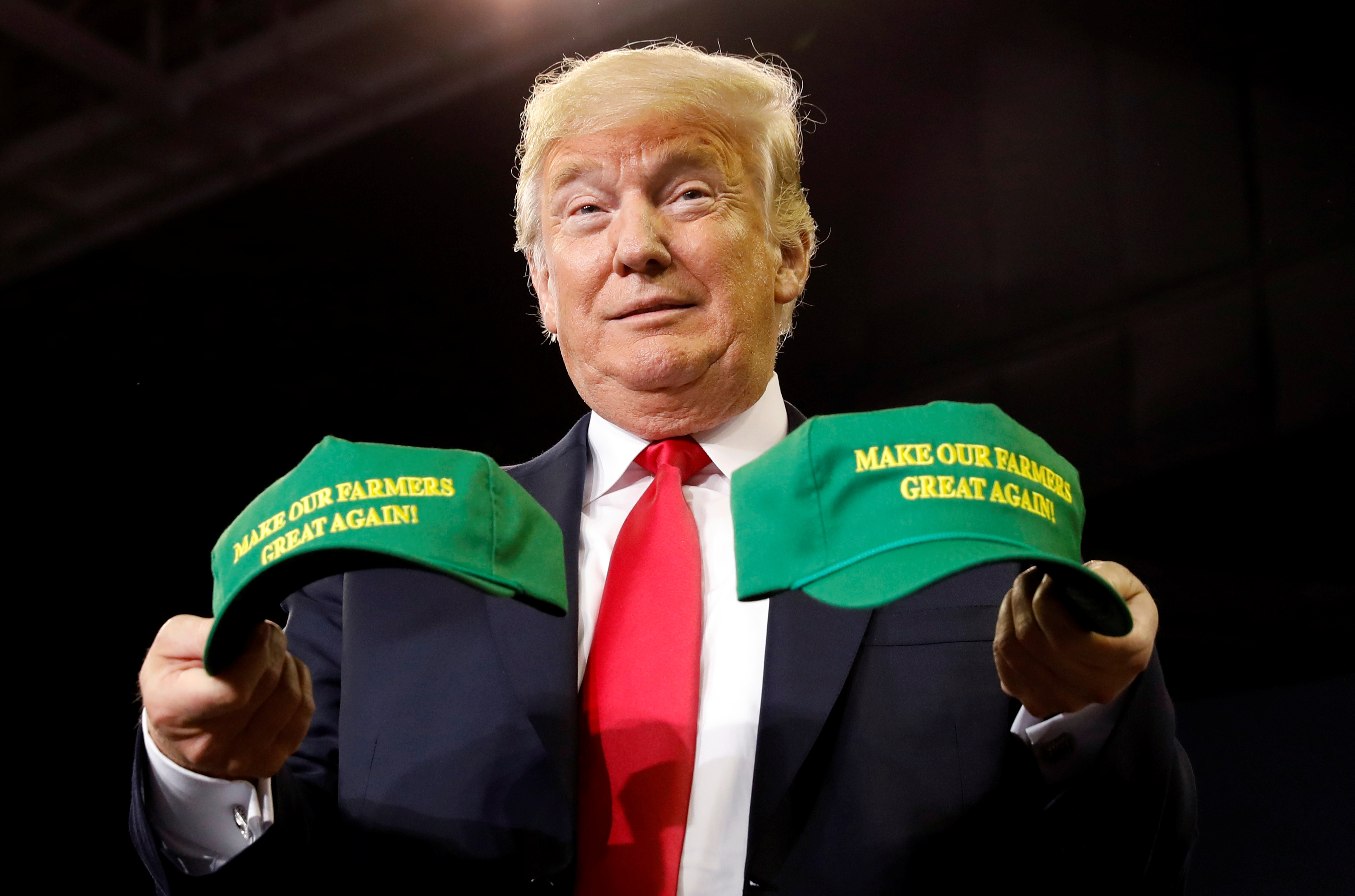BY GINA CHON
A financing drought may crack farmers’ loyalty to Donald Trump. The U.S. president’s trade war has evaporated export markets for a number of crops, leaving growers struggling even more than before.
Sales of soybeans, the biggest U.S. agricultural export to the Middle Kingdom, were down 98 percent through mid-November 2018, according to Deutsche Bank. Wheat, pork and cherry sales have also been hurt. The Trump administration set aside $12 billion to offset the pain, but only about $840 million has been doled out.
Yet people in rural U.S. states have largely stuck by Trump. Montana farmer Lyle Benjamin told Breakingviews that he supports the president’s efforts to take on China. That echoes the general feeling among his peers, who tend to agree with the president’s criticisms of China’s unfair trade practices and believe he can deliver a better deal. They’ll take heart from the U.S.-China détente at December’s G20 summit. Trump said the People’s Republic will immediately start buying U.S. agricultural products. But Beijing has not confirmed that — and its 25 percent tariff remains.

Benjamin also noted, though, that credit has become tight and many farmers have used what liquidity they had. In the first few months of 2019 they’ll be looking for financing for the next harvest.
Thanks to tariffs worsening the pain low commodity prices have already inflicted, it’ll be hard to get. U.S. net farm income in 2018 is expected to almost halve to $66.3 billion compared to five years ago, according to U.S. Department of Agriculture forecasts. During that same period, farm debt rose by 30 percent to $410 billion.
That has pushed the farm sector’s return on assets down to 2.6 percent, well below the nearly 30-year average of 7.1 percent. Interest rates and delinquencies on agricultural loans are steadily increasing. In the year to the end of June, farm bankruptcies in the Midwest more than doubled to 84 compared to two years ago, according to the Minneapolis Federal Reserve.
U.S. farmers will be at a bigger disadvantage when the new Trans Pacific Partnership goes into effect at the end of 2018. It no longer includes the United States, and American products face higher tariffs than competitors. Without a quick resolution to trade tensions, farmers’ doubts about Trump may start to grow like a weed.
First published Dec. 24, 2018.
